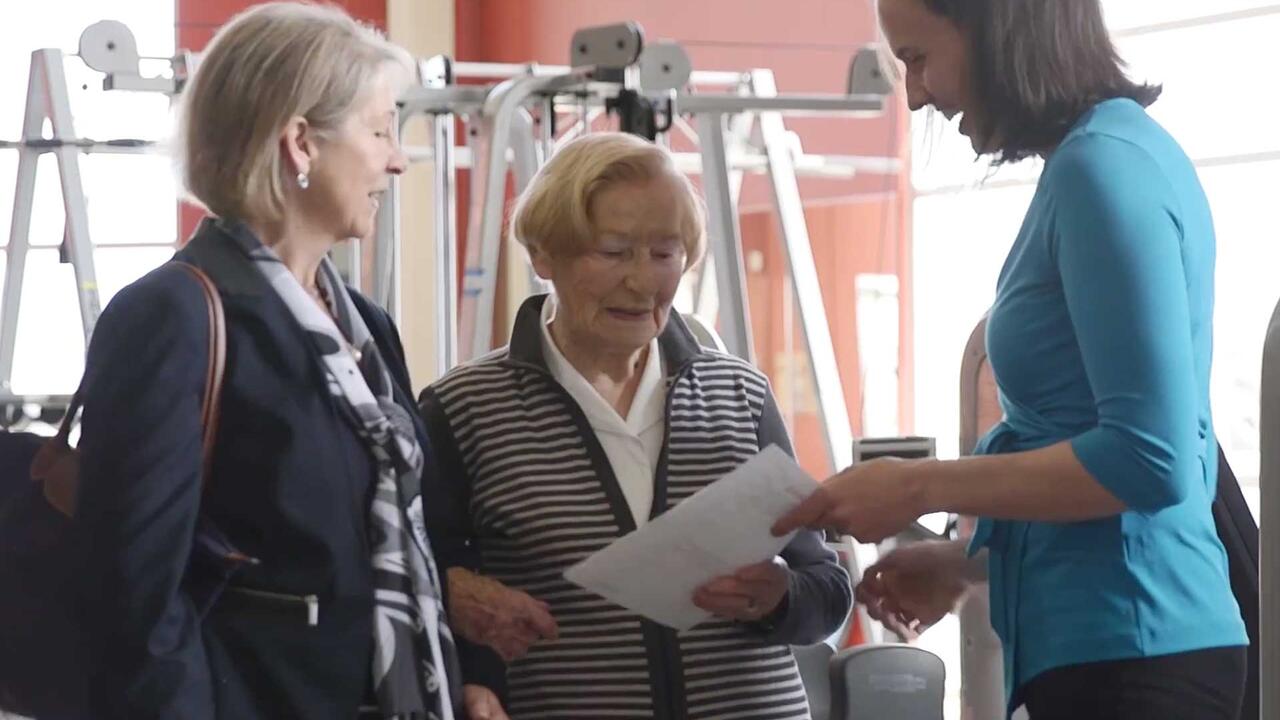
Can exercise protect against dementia?
Waterloo researcher is examining whether combining exercise with Vitamin D, cognitive training and diet interventions lowers dementia risk

Waterloo researcher is examining whether combining exercise with Vitamin D, cognitive training and diet interventions lowers dementia risk
By Nancy Harper University Communications
Laura Middleton
Professor, Faculty of Applied Health Sciences
> School of Public Health and Health Systems
> Schlegel-UW Research Institute for Aging
People who exercise have a lower risk of dementia and now researchers are working to pinpoint what kind of exercise is best, and whether combining it with other lifestyle interventions helps people at risk.
Laura Middleton, a professor in the Faculty of Applied Health Sciences, is partnering with researchers across Canada to examine how combinations of exercise, cognitive training, diet, and vitamin D affect those at risk for dementia.
Over the past decade, failures in drug trials have led many researchers to seek out alternative therapies to slow, if not prevent, the onset of dementia. Their results are encouraging, showing that about 35 per cent of cases may be preventable through health and lifestyle choices. Among these, exercise is believed to be the most protective measure.
Middleton says that older adults living with dementia who exercise can improve their daily function and show improvements in walking compared to those who stay inactive. Exercise may also directly improve the brain’s structure and function, as well as improve cognition among older adults with and without dementia.
“Our hope is that by combining therapies, we may be able to amplify the benefits,” says Middleton, who is working with researchers, people with dementia, and community stakeholders to increase the number, quality and variety of dementia-friendly exercise opportunities available to Canadians.
“One of the important things to remember is that people with dementia are broader than their diagnosis,” she adds. “I’m really excited about helping people become more physically active, and we’re engaging with people with dementia to help show us what they need.
While exercise providers from diverse organizations – from city day programs and YMCAs to private health clubs – often include people with dementia in their exercise programs, they typically don’t tailor their programs to meet the needs of people with dementia, says Middleton. The strategies tend to be developed ad hoc, and programs are often not frequent or intense enough to meet exercise recommendations.
“We can and must do better,” says Middleton. “A critical factor repeatedly listed by people with dementia and their care partners is having access to an encouraging exercise provider who understands and accommodates their unique needs.
“Ultimately, our goal is for the needs and preferences of people living with dementia to be incorporated into the design, content, and delivery of exercise programs to improve the quality of their experience.”

Read more
Using existing medication as a blueprint for a cure

Read more
Rich data from convent archives combined with brain studies after death give researchers insights into Alzheimer’s disease and aging

Read more
Waterloo researcher hopes to support drug development that blocks toxic plaques found in the brains of people with Alzheimer’s disease
The University of Waterloo acknowledges that much of our work takes place on the traditional territory of the Neutral, Anishinaabeg and Haudenosaunee peoples. Our main campus is situated on the Haldimand Tract, the land granted to the Six Nations that includes six miles on each side of the Grand River. Our active work toward reconciliation takes place across our campuses through research, learning, teaching, and community building, and is co-ordinated within the Office of Indigenous Relations.